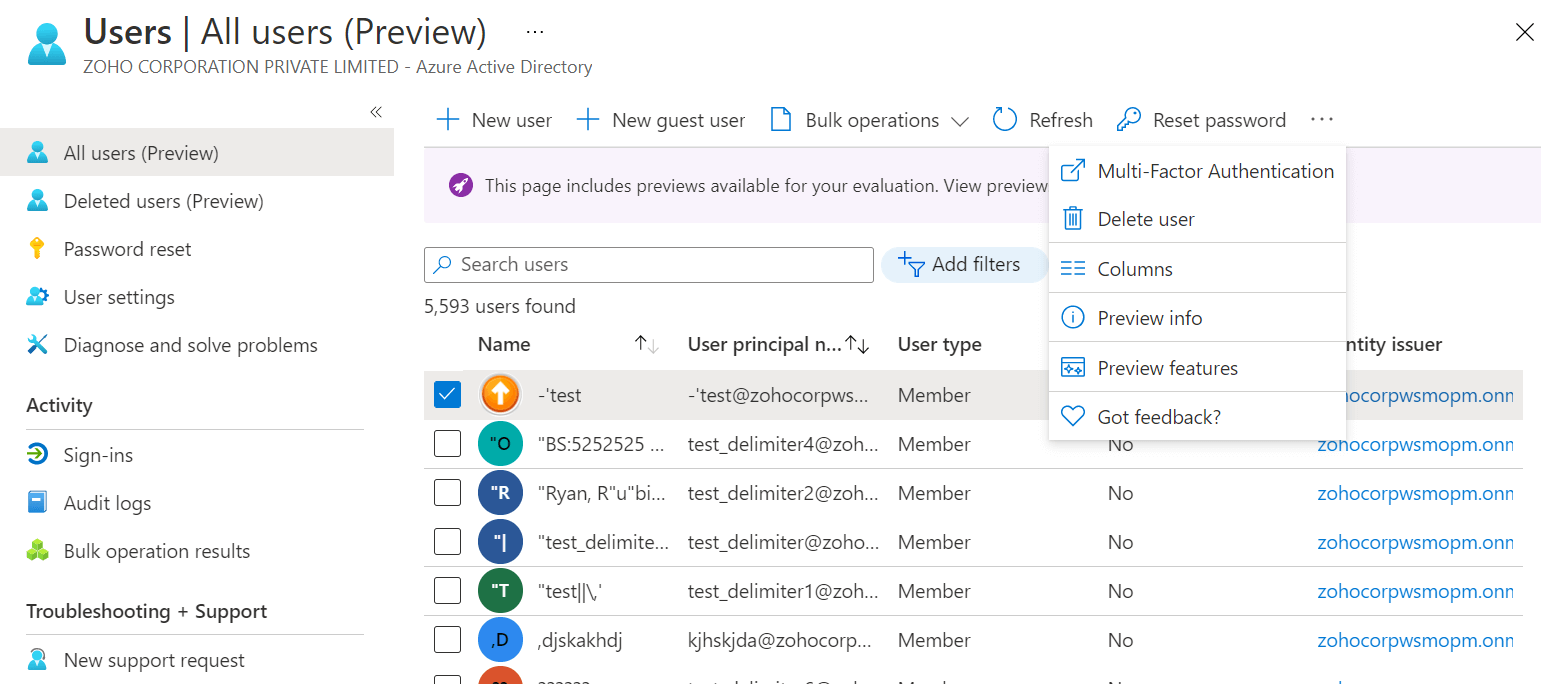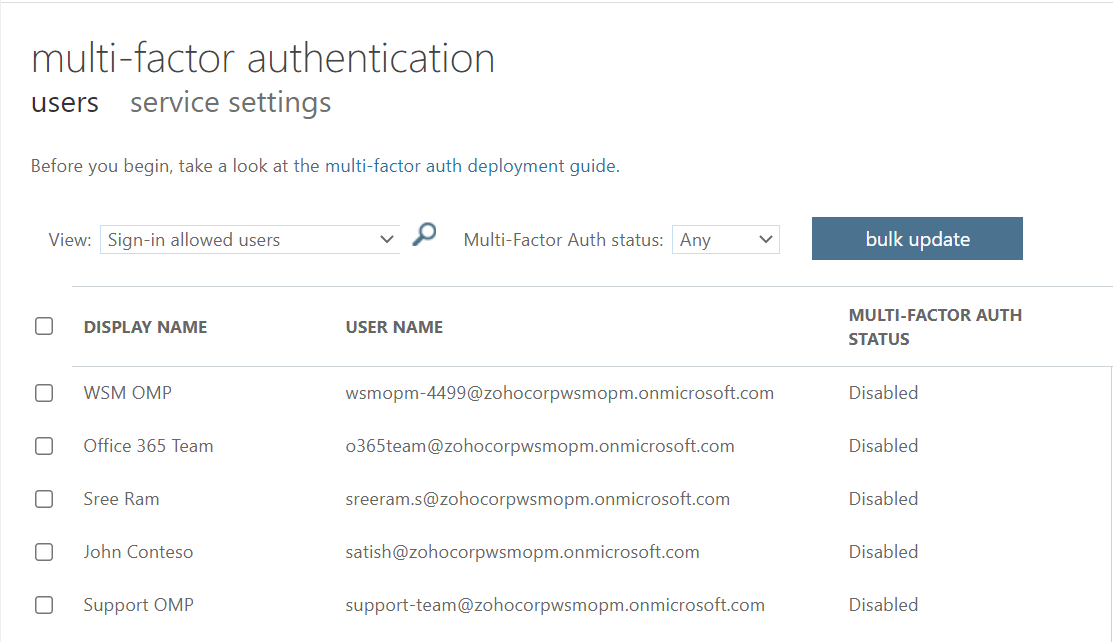- Free Edition
- Quick Links
- MFA
- Self-Service Password Management
- Single Sign-On
- Password Synchronizer
- Password Policy Enforcer
- Employee Self-Service
- Reporting and auditing
- Integrations
- Related Products
- ADManager Plus Active Directory Management & Reporting
- ADAudit Plus Real-time Active Directory Auditing and UBA
- Exchange Reporter Plus Exchange Server Auditing & Reporting
- EventLog Analyzer Real-time Log Analysis & Reporting
- M365 Manager Plus Microsoft 365 Management & Reporting Tool
- DataSecurity Plus File server auditing & data discovery
- RecoveryManager Plus Enterprise backup and recovery tool
- SharePoint Manager Plus SharePoint Reporting and Auditing
- AD360 Integrated Identity & Access Management
- Log360 (On-Premise | Cloud) Comprehensive SIEM and UEBA
- AD Free Tools Active Directory FREE Tools
Why implement Microsoft 365 multi-factor authentication?
Given the sophisticated nature of recent cyberattacks engineered by hackers, there is a pressing need to go beyond passwords to protect user accounts. Multi-factor authentication (MFA) can prove useful or even essential to achieve this. Microsoft 365, previously Office 365, is a business software suite widely used across the globe. Let's see how to enable MFA in Microsoft 365 and then look at a better solution.
Setting up MFA for Microsoft 365
MFA for Microsoft 365 user accounts can be configured through the Azure AD admin center. Here are the steps involved:
- Go to the Azure AD Admin Center.
- Navigate to Users > All Users.

- Select the More option and click Multi-Factor Authentication.
- Here you can enable MFA for multiple users using a bulk update. You can also check the boxes next to the required user accounts and enable MFA for them.

The three available verification methods are:
- Email my alternate mail: A verification code is sent to the user's alternate email address.
- Text my mobile phone: A verification code is sent to the user's registered phone number as a text message.
- Call my mobile phone: A verification code is given to the user through a phone call to the registered mobile number.
Note: The admin can register users' alternate email IDs and phone numbers to enable Microsoft 365 MFA for them. They can also let users enter this information themselves.
How Microsoft 365 MFA works on the user's end
When users log in after the admin has enabled MFA for them, they will be asked to set up verification details required to complete the MFA configuration. They can choose to get the verification code through a text message, call, or push notification to the Microsoft app.
Secure Microsoft 365 logons with ADSelfService Plus MFA
ADSelfService Plus is an integrated self-service password management and single sign-on solution. ADSelfService Plus offers over 17 advanced authentication techniques including biometrics, YubiKey, Google Authenticator, and more. Microsoft 365 accounts can be protected by these methods once single sign-on is enabled from ADSelfService Plus for Microsoft 365.
Why choose ADSelfService Plus MFA
- Flexible authenticators: Select from over 20 different authentication methods including biometrics, RADIUS server authentication, and simple push notifications.
- Customizable MFA: Choose the number of authenticators and their priority according to your requirements.
- Risk-based MFA: Implement different sets of authenticators according to the user's privileges, location, device, and more.
- MFA for multiple platforms: Enforce multi-platform security with MFA for Windows, MFA for Linux, MFA for macOS, MFA for on-premise and cloud applications, MFA for VPN logins, and more—all from one dashboard.
Highlights of ADSelfService Plus
Password self-service
Unburden Windows AD users from lengthy help desk calls by empowering them with self-service password reset and account unlock capabilities.
Multi-factor authentication
Enable context-based MFA with 20 different authentication factors for endpoint, application, VPN, OWA, and RDP logins.
One identity with single sign-on
Get seamless one-click access to more than 100 cloud applications. With enterprise single sign-on (SSO), users can access all their cloud applications using their Windows AD credentials.
Password and account expiry notifications
Notify Windows AD users of their impending password and account expiry via email and SMS notifications.
Password synchronization
Synchronize Windows AD user passwords and account changes across multiple systems automatically, including Microsoft 365, Google Workspace, IBM iSeries, and more.
Password policy enforcer
Strong passwords resist various hacking threats. Enforce Windows AD users to adhere to compliant passwords by displaying password complexity requirements.










